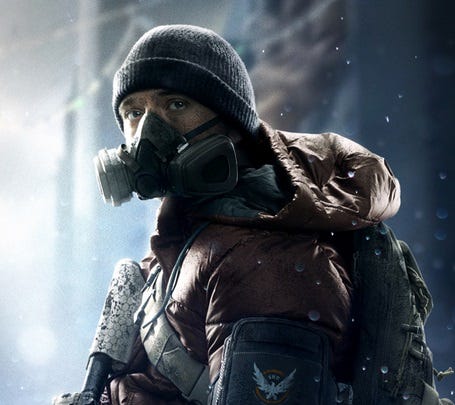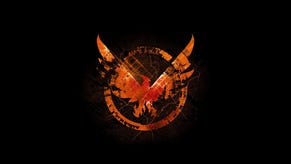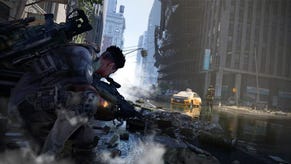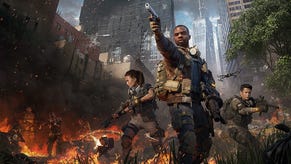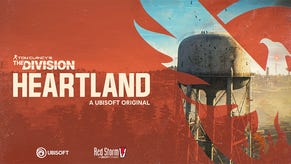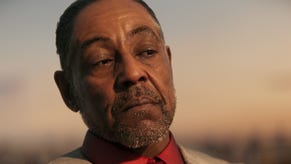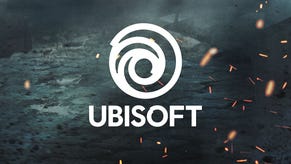The Division: Tom Clancy's "proper" RPG
A role-playing game may be a shot in the arm that the Tom Clancy brand needs. Matt Martin talks to The Division's Rodrigo Cortes about loot, grinding and levelling up in real-world New York.
"It's a proper RPG. We don't have dragons or weird spell effects, we have technology and we have weaponry."
RPGs are everywhere, and they're cool again. But "MMORPG" is still a bit of a dirty word.
Look at Destiny. It's clearly a massively multiplayer online role-playing game, but you won't find Bungie and Activision dropping the M-word around it.
And then there's Dead Island 2, an online four-player first-person shooter dragging RPG elements behind it like a zombie drags a blunt axe.
Or Ubisoft's The Crew, an online multiplayer racer where you customise your vehicle not your driver. Someone in marketing would get paid millions to label it a "CaRPG".
But when most games say they have RPG elements what they mean is there are some stats that you can upgrade over time. They don't have loot chests and levelling and character builds and loadouts and skill trees and all that stuff we associate with wizards and goblins.
Tom Clancy's The Division does. It's an honest-to-goodness old-fashioned MMORPG.
"The biggest thing is it's a Tom Clancy RPG," says Rodrigo Cortes, senior brand art director for The Division. "It's mixing realistic, tactical, possible scenarios with online play and RPG mechanics."
Cortes agrees that more games are throwing RPG elements into the mix, but points out that The Division started out as an RPG from the ground on up.
"You're starting to see similar mixing of genres in other games. Before a game was either a shooter, or a third-person game, or a driving game. But now more and more there's a blend of genres into a bigger game. It can make the game hard to define - it has shooter elements, RPG mechanics, it's cover-based, online and a seamless open-world.
"It has all of that, yes. But we took it to heart. It's a proper RPG."
It's refreshing to hear a developer proudly admit what a game is, rather than float around the subject throwing in marketing phrases ("shared-world shooter" - urgh) and talk of the "experience". It's an RPG, but instead of swords and shields it's loaded with grenades and sniper rifles. There is character levelling and upgrading for weapons, gear, skills and other stats.
There's few, if any, role-playing games set in a modern war setting. It's a genre that's obsessed with fantasy and sci-fi. But what initially seems an odd choice for a brand famously associated with cold war thrillers and future tech espionage, may actually turn out to be the most refreshing take on the Clancy brand in years.
"It was our biggest challenge from the very beginning," admits Cortes. "We weren't sure if it was even possible but after a couple of years to get things running it became the game's strength.
"Tom Clancy is what keeps us sane. We wanted a new relatable hero and it's hard to relate to super-soldiers."
"There's nothing like it out there so we can do things surprisingly well that nobody has done before. We don't have dragons or weird spell effects, we have technology and we have weaponry."
First revealed during E3 2013, The Division casts the player as an ordinary Joe, forced to take back New York after the U.S. is devastated by the release of a deadly virus. Society collapses in five days, and those left alive must team up to combat the disease, those that unleashed it, and a country turned hostile by its own need to survive.
It's trying to be more down to earth than future war and sci-fi gadgets, but it has roots in Clancy's Jack Ryan tales. This basis is developer Massive's starting point, and acts as an anchor from which it builds a real-world RPG.
"Tom Clancy is what keeps us sane," says Cortes. "It's like a compass for us. Designing the skills, the enemies and the technology - it's all based on the concept of realism. The concept of the virus and the collapse of society, but relevant to this generation. So before it was about terrorism or war but the new fear now is how easily society can collapse when there is no electricity, of the fear of something like SARS or ebola. That's what we take from Clancy."
"We also went back to the roots of the Tom Clancy brand," he adds. "Most of the Clancy games we've done have been focused on the military, but our characters are all from civilian backgrounds. They get technology and training, but they have been normal citizens who have been expecting something like this to happen.
"We wanted a new relatable hero and it's hard to relate to super-soldiers. With our heroes you can create them exactly how you want - gender, race, etcetera - and they have all the same problems you or I would have, except they're put in a very extreme situation."
Gameplay is split into PvE story missions for between 1 and 4 players, and then the usual PvP for more competitive experiences. While the game is always online (remember when that phrase caused a stink?), it can be played through solo.
"You are never forced to do any grouping or any PvP. You can complete the whole game yourself."
"You are never forced to do any grouping or any PvP," offers Cortes. "You can complete the whole game yourself. You will see other players in the social areas but you don't have to engage with any of them. You can play almost as a single-player game but it's always online."
And co-op is limited to four players in order to maintain the atmosphere in the story-driven campaign, said Cortes. "It's not a technical decision it's a gameplay decision.
"In many online RPG games there are people disturbing your experience. We took the decision early on to create the experience to compliment 1-4 players. We don't want an emotional experience ruined by a guy with a weird name dancing in front of you."
That's an admiral decision. So The Division is an RPG that can be played co-operatively, with multiple people in player vs player, or just as a single-player experience. And on top of those options, Massive hopes players will find plenty of content. If they exhaust that, there are plans to continue to keep the game pumping post-release.
"The whole game is built around progression," says Cortes. "There's story progression and then progressions of gear, skills and challenges for the completionists.
"We're not talking about post-launch plans yet, but we are planning on doing a lot. It's a challenge because it's a game where we want to keep the players engaged without it feeling like a repeat or a grind. We're very conscious about it, we're working very actively to make an experience that feels fresh for a long period of time."
Yep, that sounds like an MMORPG to me.
The Division is scheduled for release on PC, Xbox One and PS4 in 2015.
